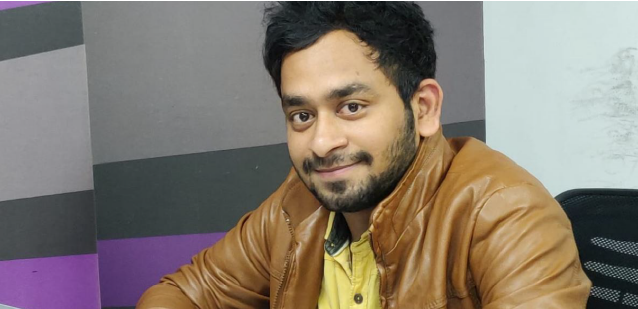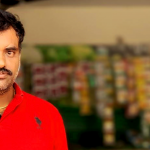In 2011 I graduated high school and the most important thing for me at that point in time was to get into a good college and choose a course that would set my career path. All of my peers were opting for Electronics and Communications Engineering, which I also thought to be the right course for me. Instead, I got a seat in Information Technology from VIT. I realized my love for code as I delved deeper into the subjects.
A career in tech was still a lucrative choice. I got placed in a reputed MNC right after college. I was thrilled at how well things were going. However, soon I began to feel incomplete working in a big company. All I did was code the same things over and over again. I was one among hundreds who were hired to do the same work. I had no idea about what was actually happening in the company because I was restricted to my domain and could not look beyond my desk. To put it simply, I felt like I was in a corporate jungle stuck in this constant rat race; and me – a human-machine.
Out of curiosity, I would read about e-commerce startups like Uber and Ola and marvel at the brilliance of the concept. I researched about how these apps worked and thought about the ingenuity, the art and the algorithms behind them. These apps are used every single day by people around the world; they make life convenient, which is what is needed in a fast-paced world that is today.
I decided to leave the MNC and start looking for something different – a job, a place and a culture that suits me. I began looking for jobs in the eCommerce sector. I had two offers in hand – Ninjacart and another well-established startup. Initially, I leaned towards the latter because the salary was better. But, that job would be no different than an MNC since there was barely any room to grow. On the other hand, Ninjacart as a concept fascinated me. The business model was unique, and nobody else in the industry was doing what they did. I knew it would be challenging, which was exactly the kind of excitement I needed in life.
In December 2016, I joined Ninjacart. Initially, I was overwhelmed at the speed at which people worked. Luckily, I had a good manager who was also the Tech Lead. He helped me understand the products and all the processes involved. I learnt a great deal during this phase – to deploy code, to test, to execute, and to monitor once released to the end-user.
The on-ground reality is always different in any company and in order to write efficient code, you must always be aware of the conditions of the people you write the code for. I remember this one instance where I visited a facility in Chennai. The environment here was drastically different from what I was typically used to. We sit comfortably in A/C rooms, while the labourers on ground need to work under the hot sun. The least I could do was to make their work less tiresome. So, I created products where the efficiency of processes was high such that the effort taken by a labourer was minimal. Similarly, the tech team has built products that focus on problem-solving. The Fresh Produce Supply Chain is plagued with problems and it is up to us to understand and solve them as soon as possible, which is what makes the job so intriguing.
When Ninjacart was in its nascent stages, the teams were small. Everybody contributed towards solving problems in every way possible, and nobody was restricted to one single domain. This way, I had the opportunity to apply my tech skills in Procurement, Finance, Logistics, and now in Supply Chain Management, which is one of the core functions of Ninjacart.
From a small 10-member team to 100+ people working in Tech, it’s truly a great feeling to help your team grow from scratch and witness them create wonders. The team is always eager to learn and create, and the enthusiasm when it comes to rolling out a new product is unlike any other company.
I have certainly learned a lot working at Ninjacart; it has helped me to gain confidence in my skills, the strength to fail and learn from my mistakes, and has given me a better perspective on life. My manager rightly said a line which I carry with me to this day – “Making a mistake is always more right than doing nothing at all.”
Narrated by Pulla Rao, SDE II – Software Development
0




Great content! Super high-quality! Keep it up! 🙂